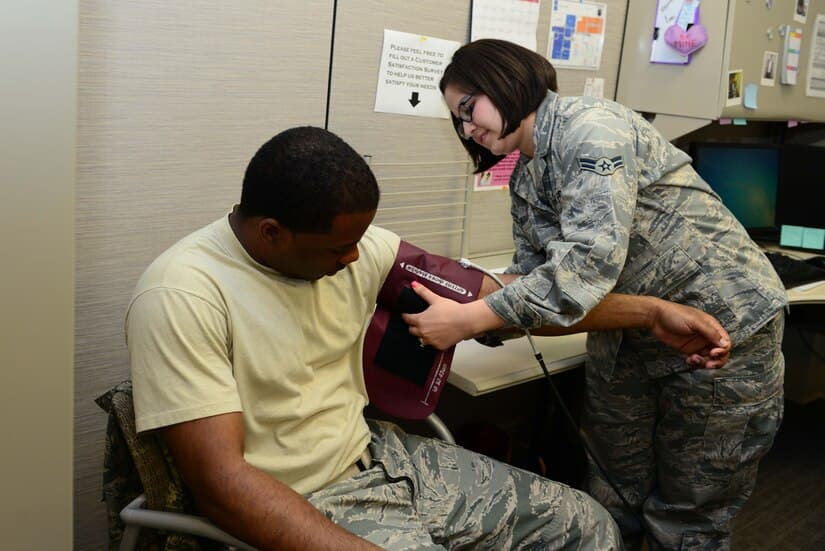As a member of the military, it’s important to take care of yourself physically and mentally. In addition to your regular physical, it’s also important to complete your Periodic Health Assessment (PHA) on a regular basis. This allows you to stay in top shape and ready to deploy at a moment’s notice.
The PHA is a comprehensive, face-to-face, medical assessment encompassing clinical preventive screening tests, immunizations, surveillance of occupational risks, medical record review, assessment of deployment readiness, and counseling addressing the Soldier’s risk factors and behaviors. The PHA is mandated by DoD policy and is based on U.S. Preventive Services Task Force recommendations.
If you are a remote Active, Reserve, or AGR Soldier who can’t make it to the SMRC for your PHA, you can use a telemedicine appointment service called VIPRR. You can request this through the appointment portal once your supporting documentation is uploaded by your Organic Chain of Command or Medical Readiness NCO. Alternatively, you can schedule your PHA through the SMRC clinic at your unit location. You are notified through global e-mail when you have an upcoming PHA.
How Do I Complete My PHA Army?
The online portion of the PHA can be completed from any computer that has an internet connection and a CAC reader. Part A of the PHA can also be completed from mobile devices that support a browser with a CAC reader.
Soldiers who are past-due for their PHA can contact their unit deployment manager to be reminded of the requirement. If the unit deployment manager is unable to reach the service member, appropriate leadership will be notified according to the service member’s unit policy.
Once the online portion is completed, the service member can schedule their in-person PHA at their MTF or RHRP. AGR, USACC, and USAREC soldiers using RHRP or residing further than 50 miles from an MTF can complete their in-person PHA via the Virtually Integrated Patient Readiness and Remote Care (VIPRR) clinic.
It is important to remember that all service members must fast for 12 hours before their in-person PHA appointment. This means no food or drink, including water. Also, any new medical documentation should be brought with the service member to their in-person PHA appointment.

Where Can I Find My Army Medical Profile?
The profile will also include the commander’s observations of a Soldier’s duty performance, especially in relation to his or her PMOS duties. MEB physicians are especially interested in commanders’ or supervisors’ specific observations and comments and any information the Sol- dier has provided regarding his or her PMOS job-related limitations.
Observations should indicate whether a commander believes the profile restrictions are appro- priate, excessive, or not restrictive enough. Observations should also identify if the Sol- dier meets current reten- tion standards or not and, if not, the specific reasons why not.
MEB physicians must also review a Soldier’s medical history, particularly whether the condition or disease that caused the profile continues to be active or has stabilized. The MEB physician should identify whether the condition requires chronic treatment and, if so, the duration of treatment needed to achieve stabilization. The MEB physician should also indi- cate a reasonable prognosis for functional return to full duty. This should be based on the com- mander’s observations of a Soldier’s clinical status, as well as on medical literature and the commander’s or supervisors’ statements.
